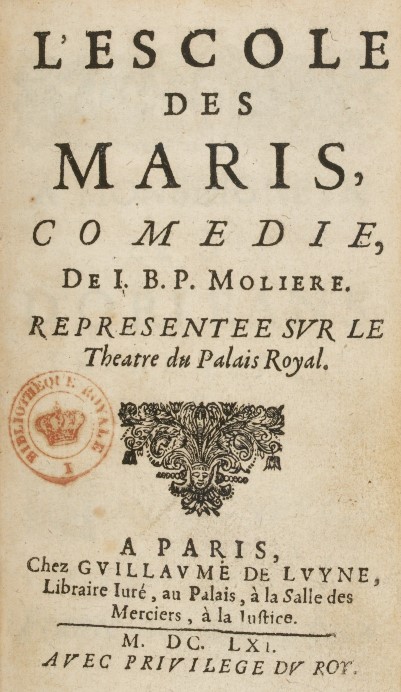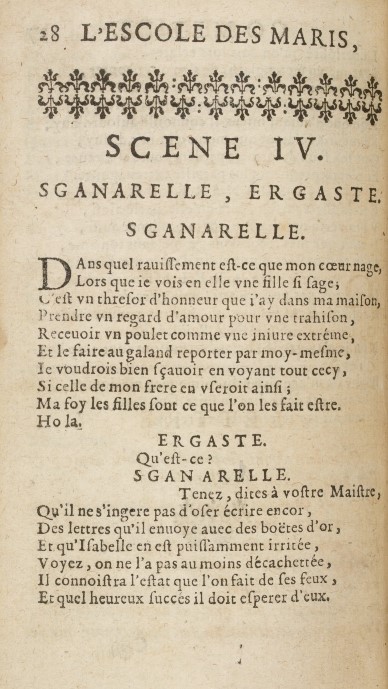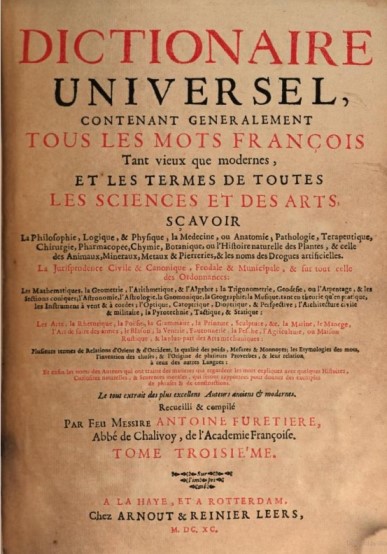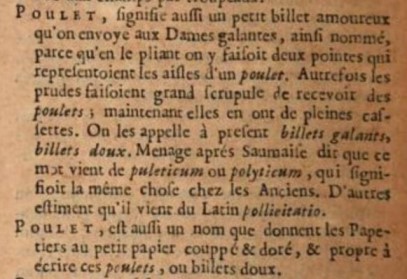| The Public Paperfolding History Project
Last updated 23/10/2024 x |
|||||||
| L'Escole des maris by Moliere, 1661 | |||||||
In Moliere's play 'L'Escole des maris', which was first performed and published in 1661, there is a line which reads 'Recevoir un poulet comme une injure extreme', which translates as 'To receive a chicken as an extreme insult'.
*** A footnote in the 1828 edition of Moliere's Complete Works explains that this 'poulet' is a 'billet amoureux, ainsi nomme, parce qu'en le pliant on y faisoit deaux pointes qui representoient les aisles d'un poulet', which translates as a 'love note, so named, because in folding it two points were made which resembled the wings of a chicken'.
********** 1690 The information in this footnote appears to have been taken from Antoine Furetiere's 'Dictionaire Universel' published in 1690, which defines 'poulet', in this sense,as , 'aussi un petit billet amoureux qu'on envoye aux Dames galantes, ainsi nomme parce qu'en le pliant on y faifoit deux pointes qui representoient led aisles d'un poulet. Autrefois les prudes faisoient grand scruple de recevoir des poulets; maintenant elles en ont de pleines caffettes. On les appelles a present billet galants, billet doux. Menage apres Saumaise dit que ce mot vient de puleticum ou polyticum, qui signifioit la meme chose chez les Anciens. D'autres estiment qu'il vient du Latin pollicitatio.' Roughly translated, 'also a little love note which is sent to the gallant ladies, so named because in folding it two points were made which resembled the wings of a chicken. Formerly the prudes were very scrupulous about receiving poulets; now they have cupfuls of them. They are now called billet gallants, billet doux. Menage after Saumaise says that this word comes from puleticum or polyticum, which meant the same thing among the ancients. Others believe that it comes from the Latin pollicitatio.' ***
********** |
|||||||





